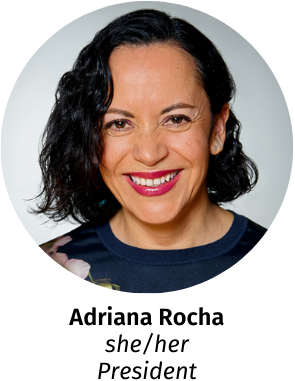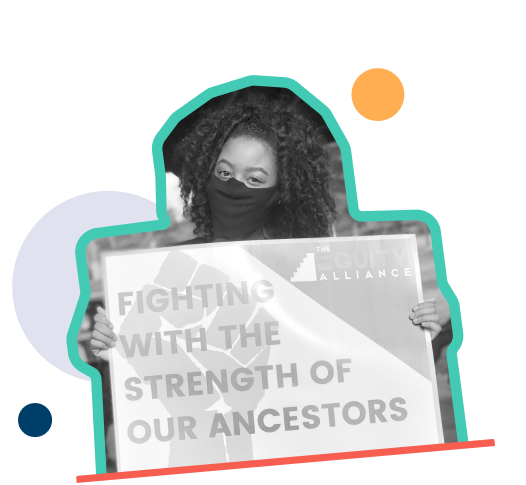Neighborhood Funders Group has shared snippets of our new theory of change in each of our newsletters so far this year.
In January, we unveiled our long-term outcome: Philanthropic assets are liberated so that BIPOC communities and low-income communities have power to self-determine. In February, we applied this outcome to NFG’s Funders for a Just Economy program — which organizes funders committed to supporting economic justice and worker power to rebuild an economy and democracy that works for all, ensures good quality jobs, and promotes prosperity and health.
Now, we’re excited to share our full theory of change! This process started in 2021 when we revisited our initial strategic framework that was developed three years prior. A board and staff committee came together for this work. We spoke to co-chairs of NFG programs. And we worked with the phenomenal Luminare Group who also partnered with us in 2018 on our initial strategic framework.
We began by affirming what we still held as true and core in our strategic framework while also naming our curiosities. What we found (and still find) unique and powerful in the process of developing our theory of change are the conversations and connections, the clarity named, and the commitments made. Over the course of 2021, we affirmed and refined these elements of our theory of change: the problem we seek to address, our guiding principles and values, assumptions, context, strategies and our outcomes. We also identified the evidence (empirical and experiential) that informs us. We did this so that we can be clear on our commitments, push ourselves and our work, learn from what we try on, and be accountable to you and each other.
As I shared in my January message: We know that this is a critical time for philanthropy. More people are amassing wealth, leading to more billionaires entering philanthropy and the creation of more DAFs and private foundations. There continues to be wealth hoarding among individual and foundation donors. Many foundations persist in adhering to a minimum 5% payout while endowments continue to grow. And we are seeing some positive shifts with foundations spending down the assets they’ve been holding and shifting their investment practices. Many more funders are centering trust, community power building, and decentralized decision-making in their grantmaking.
Given this context, we named key assumptions to inform our work going forward:
-
Philanthropy is at a choice point. The sector has an opportunity to shift and transform, and some grantmakers are making that choice. Others continue to pull back and maintain the status quo.
-
Different practices are possible in philanthropy when guided by an analysis that centers root causes and intersectional analysis.
-
It will take examples and stories of how to increase spend out, transform investments, and change philanthropic practices to show the way.
-
Progress toward our theory of change outcomes will take a broad base of funders: those interested in racial, gender, economic, disability, and climate justice beginning their journey and those leading the way who are funder organizers and leaders.
-
All of us in philanthropy — Black, Indigenous, people of color, and white people — can transform our understanding to be greater leaders for justice. Even though all of us are implicated, who leads matters! Who is leading will shape how and what we fund.
Our refreshed theory of change document is a commitment, an aspiration, and a blueprint for how NFG wants to be in our work and in our relationships with our community.
This theory of change will move us toward the following outcomes:
-
Philanthropy is led by Black, Indigenous, and people of color leaders who have experience in building community power
-
Philanthropic practices shift power to BIPOC communities and are grounded in trust
-
Racial, gender, economic, disability, and climate justice is funded with all philanthropic assets

And it will guide how we partner, plan programming, and co-conspire with our community of grantmakers to liberate philanthropic assets so that BIPOC and low-income communities have power to self-determine.
We look forward to being in community with you to make this transformation together.
Onwards,
Adriana

![[Summary] Theory of change graphic. Problem statement: The philanthropic sector is not organized and lacks the accountability to shift power and resources to communities working towards racial, gender, economic, disability, and climate justice. Outcome: Philanthropic assets are liberated so that BIPOC and low-income communities have power to self-determine.](https://nfg.org/wp-content/uploads/2022/05/TheoryOfChange-scaled.jpg)